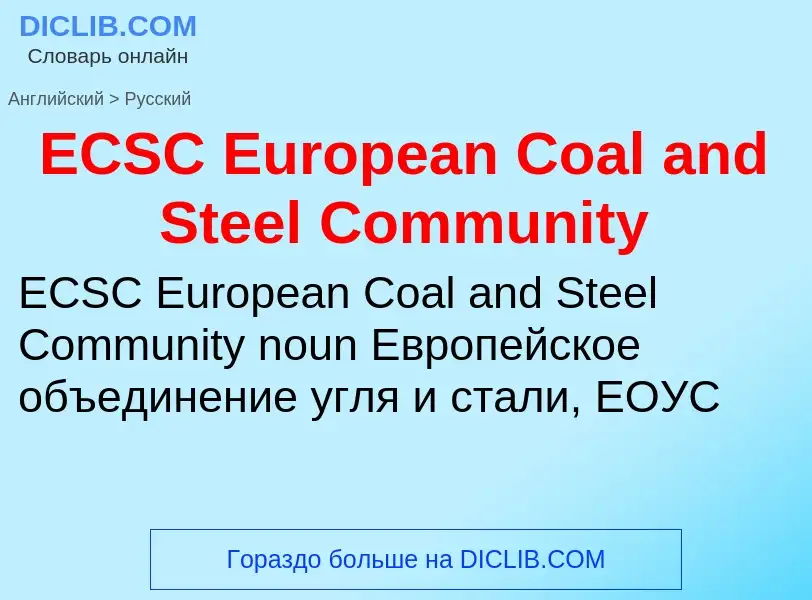Traducción y análisis de palabras por inteligencia artificial
En esta página puede obtener un análisis detallado de una palabra o frase, producido utilizando la mejor tecnología de inteligencia artificial hasta la fecha:
- cómo se usa la palabra
- frecuencia de uso
- se utiliza con más frecuencia en el habla oral o escrita
- opciones de traducción
- ejemplos de uso (varias frases con traducción)
- etimología
ECSC European Coal and Steel Community - traducción al Inglés
Definición
Wikipedia
The European Coal and Steel Community (ECSC) was a European organization created after World War II to integrate Europe's coal and steel industries into a single common market based on the principle of supranationalism. It was formally established in 1951 by the Treaty of Paris, signed by Belgium, France, Italy, Luxembourg, the Netherlands, and West Germany. The organization's subsequent enlargenment of both members and duties ultimately led to the creation of the European Union.
The ECSC was first proposed via the Schuman Declaration by French foreign minister Robert Schuman on 9 May 1950 (commemorated in the EU as Europe Day), the day after the fifth anniversary of the end of World War II, to prevent another war between France and Germany. He declared "the solidarity in production" from pooling "coal and steel production" would make war between the two "not only unthinkable but materially impossible". The Treaty created a common market among member states that stipulated free movement of goods (without customs duties or taxes) and prohibited states from introducing unfair competitive or discriminatory practices.
Its terms were enforced by four institutions: a High Authority composed of independent appointees, a Common Assembly composed of national parliamentarians, a Special Council composed of national ministers, and a Court of Justice. These would ultimately form the blueprint for today's European Commission, European Parliament, the Council of the European Union, and the European Court of Justice, respectively.
The ECSC set an example for the pan-European organizations created by the Treaty of Rome in 1957: the European Economic Community and European Atomic Energy Community, with whom it shared its membership and some institutions. The 1967 Merger (Brussels) Treaty merged the ECSC's institutions into the European Economic Community, but the former retained its own independent legal personality until the Treaty of Paris expired in 2002, leaving its activities fully absorbed by the European Community under the frameworks of the Treaties of Amsterdam and Nice.


